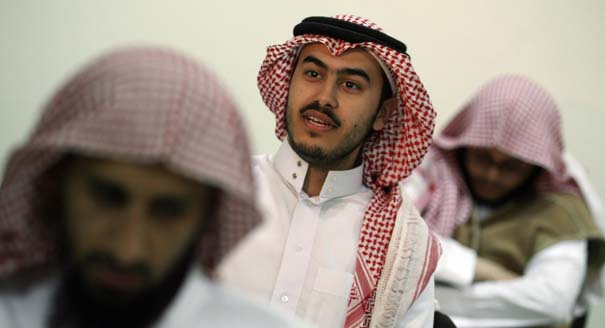Registration
You will receive an email confirming your registration.
Scholars, analysts, and activists from across the Middle East, Europe, and the United States will examine the commonly neglected forces at work in this dynamic and strategically important region.
Share your questions and comments, and join the conversation on Facebook and Twitter @CarnegieEndow, using #DynamicGulf.
This conference was cosponsored by Carnegie and Project on Middle East Democracy (POMED).
New Trends in Activism: Youth, Women, and Islamists
Despite widespread assumptions that the Gulf is an island of stability in the Arab world, the new Gulf is in fact dynamic and is seeing a sea change in informal politics and methods of activism.
Despite widespread assumptions that the Gulf is an island of stability in the Arab world, the new Gulf is in fact dynamic and is seeing a sea change in informal politics and methods of activism. To discuss the new trends in youth, women, and Islamist activists, Carnegie and POMED invited Kristin Smith Diwan, Assistant Professor of Comparative and Regional Studies at the American University School of International Service; Jane Kinninmont, senior research fellow in the Middle East and North Africa Programme at Chatham House; and Ahmed al Omran, Saudi blogger and writer for the Riyadh Bureau, to join a panel moderated by Stephen McInerney, Executive Director of POMED.
Jane Kinninmont
European Leadership Network
Kristin Smith Diwan
Ahmed al Omran
Stephen McInerney
Continuity and Change in the Gulf: How Stable and For How Long?
It remains to be seen whether the Gulf States will be able to stave off a Gulf Spring in the face of the politicization of previously dormant groups, growing economic challenges, and increasingly open media.
In the final panel of the day, speakers debated the ability of the Gulf States to stave off a Gulf Spring in the face of the politicization of previously dormant groups, growing economic challenges, and increasingly open media. Panelists also discussed the impact that regional instability and sectarianism—particularly the Syrian crisis—will have on Gulf governments. This session featured Kristian Coates-Ulrichsen, Baker Institute Fellow for Kuwait at Rice University, Bernard Haykel, professor of Near Eastern Studies at Princeton University, and Mark Lynch, associate professor of Political Science and International Affairs at the Elliot School of International Affairs at George Washington University. The panel was moderated by Carnegie’s Frederic Wehrey.
A New Ruling Bargain? Reform and Gulf Elite Dynamics
The seismic political transitions brought on by the Arab Spring has introduced new difficulties facing the Gulf monarchies’ ruling families, their political systems, and the political culture of a changing Gulf society.
The seismic political transitions brought on by the Arab Spring has introduced new difficulties facing the Gulf monarchies’ ruling families, their political systems, and the political culture of a changing Gulf society. To discuss the effects of these changes Carnegie and POMED invited Andrew Hammond, former Reuters correspondent for Saudi Arabia, Ali Al Shihabi, author and investment banker from Saudi Arabia, and Abdulhadi al-Khalaf, former Bahraini member of parliament and professor of Sociology at Lund University in Sweden to join a panel moderated by Marc Lynch, professor of Political Science and International Affairs at the George Washington University.
Ali Al Shihabi
Andrew Hammond
Abdulhadi al-Khalaf
Marc Lynch
Nonresident Senior Fellow, Middle East Program
